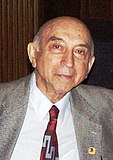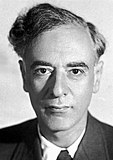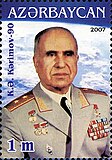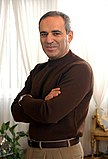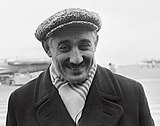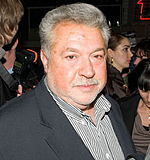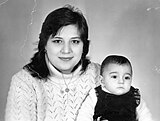
Baku
Baku (US: /bɑːˈkuː, ˈbɑːkuː/, UK: /bæˈkuː, ˈbækuː/;[7][8] Azerbaijani: Bakı [bɑˈcɯ] ⓘ) is the capital and largest city of Azerbaijan, as well as the largest city on the Caspian Sea and in the Caucasus region.[9] Baku is 28 metres (92 ft) below sea level, which makes it the lowest lying national capital in the world and also the largest city in the world below sea level. Baku lies on the southern shore of the Absheron Peninsula, on the Bay of Baku. Baku's urban population was estimated at two million people as of 2009.[10] Baku is the primate city of Azerbaijan—it is the sole metropolis in the country, and about 25% of all inhabitants of the country live in Baku's metropolitan area.
For other uses, see Baku (disambiguation).
Baku
Bakı
2,140 km2 (830 sq mi)
−28 m (−92 ft)
2,616,948[1]
2,675,000[3]
Bakuvian[5] (Bakılı)
+994 12
10, 90, 99, 77
Walled City of Baku with the Shirvanshah's Palace and Maiden Tower
Cultural
iv
2000 (24th session)
2003–2009
Baku is divided into twelve administrative raions and 48 townships. Among these are the townships on the islands of the Baku Archipelago, as well as the industrial settlement of Neft Daşları built on oil rigs 60 kilometres (37 miles) away from Baku city in the Caspian Sea. The Old City, containing the Palace of the Shirvanshahs and the Maiden Tower, was designated as a UNESCO World Heritage Site in 2000.[11]
The city is the scientific, cultural, and industrial centre of Azerbaijan. Many sizeable Azerbaijani institutions have their headquarters there. In the 2010s, Baku became a venue for major international events. It hosted the 57th Eurovision Song Contest in 2012, the 2015 European Games, 4th Islamic Solidarity Games, the European Grand Prix in 2016, the Azerbaijan Grand Prix since 2017, the final of the 2018–19 UEFA Europa League, and was one of the host cities for UEFA Euro 2020. The Baku International Sea Trade Port is capable of handling two million tonnes of general and dry bulk cargoes per year.[12] Baku is renowned for its harsh winds, reflected in its nickname, the "City of Winds".
Etymology
Baku is long attested under the Perso-Arabic name باکو (Bākū). Early Arabic sources also refer to the city as Bākuh and Bākuya,[13] all of which seem to come from a Persian name. The further etymology is unclear.
A popular etymology[14] in the 19th century considered it to be derived from Persian بادکوبه (Bâd-kube, meaning "wind-pounded city", a compound of bād, "wind", and kube,[15] which is rooted in the verb کوبیدن kubidan, "to pound", thus referring to a place where wind would be strong and pounding,[16] as is the case of Baku, which is known to experience fierce winter snow storms and harsh winds). This popular name (Badkubə in modern Azerbaijani script) gained currency as a nickname for the city by the 19th century (e.g., it is used in Akinchi, volume 1, issue 1, p. 1), and is also reflected in the city's modern nickname as the "City of Winds" (Azerbaijani: Küləklər şəhəri). Another and even less probable folk etymology explains the name as deriving from Baghkuy, meaning "God's town". Baga (now بغ bagh) and kuy are the Old Persian words for "god" and "town" respectively; the name Baghkuy may be compared with Baghdād ("God-given") in which dād is the Old Persian word for "give".
During Soviet rule, the city was spelled in Cyrillic as "Бакы" in Azerbaijani (while the Russian spelling was and still is "Баку", Baku). The modern Azerbaijani spelling, which has been using the Latin alphabet since 1991, is Bakı; the shift from the Perso-Arabic letter و (ū) to Cyrillic "ы" and, later, Latin "ı" may be compared to that in other Azerbaijani words (e.g. compare قاپو qāpū in old Perso-Arabic spelling with modern Azerbaijani qapı, "door") or in suffixes, as و was often used to transcribe the vowel harmony in Azerbaijani (which was also the practice in Ottoman Turkish). (See also Azerbaijani alphabet.)
Health care
According to the Ministry of Healthcare, healthcare facilities in Baku are "highly developed compared with the regions and doctors are waiting to work there. The regions, meanwhile, lack both doctors and clinics providing specialized medical treatment." Resulting in citizens travelling for many hours to Baku to receive adequate medical treatment.[135]
